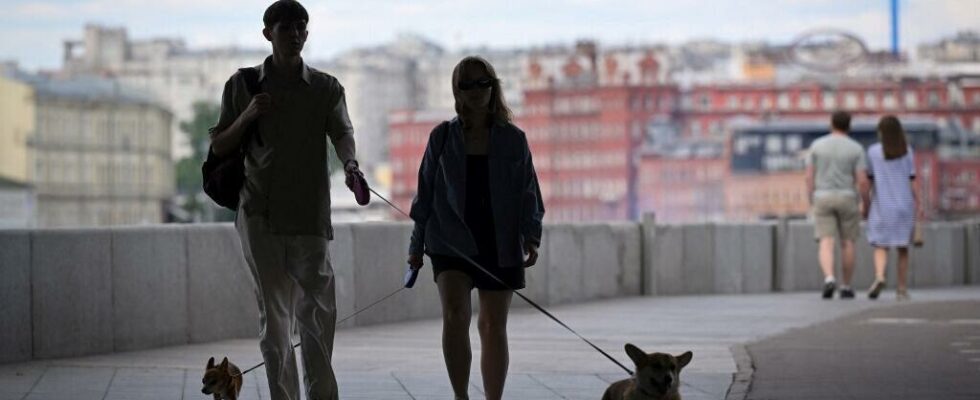Between censorship and retroactive laws, every day, ordinary Russians limit themselves a little more in their public expression. However, many of them feel more than ever the need to be able to talk together and confront each other on subjects that concern them. Some are trying to meet this need through focus groups.
4 mins
From our special correspondent in Saint Petersburg,
A former industrial building that has become a trendy meeting place, at the water’s edge, then upstairs, a room with chairs arranged in an arc. The room, still empty, is expecting around thirty people in a few hours. The debates will be moderated by Eva, Nikita, and – this is a pseudonym to protect her anonymity at her request – Quetiapine. They are all under 30 and are local organizers of debate evenings.
Nikita remembers: “ We started this project in 2018 in Moscow, as a discussion group where we can talk politics without becoming enemies. We wanted to contribute to a kind of civil peace, by teaching people how to talk to each other despite contradictions and disagreements. “.
The project, where all decisions are made by consensus, has spread to the country’s major cities: Saint Petersburg then Yekaterinburg, Kazan, Novosibirsk. But the war, the repression, the polarization of society shook everything up, for almost a year in Russia.
“ Society was totally electrified, on both sides, explains Qetiapin. Some didn’t even want to have to cross paths anymore. For our part, we were not sure at the beginning of being able to contain a possible conflict between people, or of knowing how to regulate comments made that could have created problems for us with the law. So, we first reformatted the project, and we focused on organizing events that could help us think about what was happening in 2022. For example, we showed films about the war in Vietnam, or the French war in Algeria, meetings which could allow people to reflect on current events, but without having to refer to them directly “.
Debates also internally
The moderators themselves admit to having argued a lot about how to adapt to the new situation. “We had an avalanche of very tough debates and disagreements in our internal Telegram chat groups,” admits Nikita. “We finally reached a form of compromise. Let’s say that some people ended up being ready to invite certain profiles. And those who wanted this type of profile to come also made concessions on their side.” Today in any case, everyone calmly accepts their disagreements. So, when Eva begins to explain: “ We organized an event outside of Russia where we invited a person from the organization “Society of the Future”, an organization that helps provide humanitarian aid for special operation soldiers », Nikita raises her hand: “Oobjection! Aid to the military is not humanitarian. »
According to the organizers, today the participants each come with their opinions and with their words: “ Special operation » or “ large-scale invasion “. But the public is reminded each time of the existing laws in Russia and their possible criminal consequences. Each person who speaks out does so knowingly.
A project perceived as “a safe place, a place of comfort»
The topics of discussion are also far from all being linked to current affairs. Creating connections also involves, for example, evenings of discussion on the theme of protecting the historical heritage of Saint Petersburg, on religious questions, on love. It is also a reflection of the position of the organizers themselves. A position that has sometimes evolved over time.
For Tatiana, “ initially, the concept of the project was what was most important to me, a place where people with absolutely different points of view could exchange without quarreling, and even possibly arrive together to develop a common position. But over the last two years, I have seen our project more as a safe place, a place of comfort. I had left Russia for a while, and when I came back, it helped me a lot not to go crazy, because I could meet people who thought like me, and I could also offer them something that would help them. helped.”
Some of the organizers have had public political activity in the past, for example going to demonstrations or participating in election campaigns. But they quickly stopped: “ it became too dangerous, I was afraid of going to prison », Explains one of them.
Discussion evenings can accommodate a maximum of twenty to a hundred people. But each time, the profiles of the candidates for the debate are carefully examined before being accepted. You can never be too careful in the Russia of 2024.
